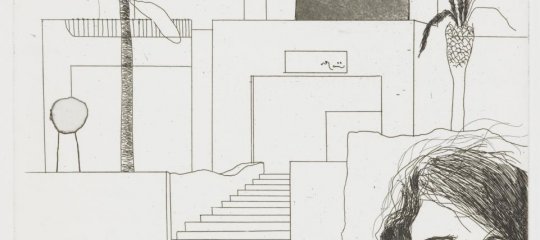Γνωρίζεις ήδη Ελληνικά
Ονομάζομαι Άννα Δημητρακοπούλου και εργάζομαι στο ΕλληνοβρετανικόΚολλέγιο στο τμήμα των Ευρωπαϊκών Προγραμμάτων. Ο οργανισμός μας έχει συμμετάσχει τα τελευταία χρόνια σε αρκετά ευρωπαϊκά προγράμματα με στόχο την ανάπτυξη εκπαιδευτικού υλικού για την διδασκαλία της ελληνικής ως δεύτερης/ξένης γλώσσας. Η ανάπτυξη του υλικού γίνεται από το Σχολείο Ελληνικών Μέγας Αλέξανδρος, το οποίο είναι τμήμα του Κολλεγίου, και από άλλασυνεργαζόμενα ιδρύματα και πανεπιστήμια από διάφορες ευρωπαϊκές χώρες. Επισυνάπτω ένα ενημερωτικό με τις δραστηριότητες του Τμήματος Διεθνών Σχέσεων του Κολλεγίου στο οποίο υπάρχει περιγραφή με τα κυριότερα προγράμματα στα οποία έχουμε συμμετάσχει είτε ως συντονιστής είτε ως εταίρος. Πιστεύουμε, ότι το υλικό που έχει αναπτυχθεί αλλά και αυτό που αναπτύσσεται μπορεί να βοηθήσει τους διδασκόντες την ελληνική και να συμβάλλει στην διάδοση της ελληνικής γλώσσας. Το τελευταίο προγραμμα στο οποίο συμμετέχουμε έχει τίτλο "Γνωρίζεις ήδη Ελληνικά". Το υλικό που θα αναπτυχθεί απευθύνεται σε αρχάριο επίπεδο. Βασικό άξονα για την ανάπτυξη του υλικού αποτελούν οι ελληνικές λέξεις που υπάρχουν στην ιταλική, ισπανική, ρουμανική, λεττονική και βουλγαρική γλώσσα.
Με εκτίμηση,
Άννα Δημητρακοπούλου
Ελληνοβρετανικό Κολλέγιο
τηλ: 210 -8217710
φαξ: 210 -8215025
18 Νοεμβρίου 2008
Το κείμενο αναφέρεται στο πρόγραμμα "Γνωρίζεις ήδη Ελληνικά", το οποίο χρηματοδοτείται από την Ευρωπαϊκή Επιτροπή. Στόχος είναι η ανάπτυξη εκπαιδευτικού υλικού για τη διδασκαλία της ελληνικής ως δεύτερης/ ξένης γλώσσας (αρχικό επίπεδο).
Γνωρίζεις ήδη Ελληνικά – You Speak Greek Already
Lifelong Learning Programme: Project No: 135459-2007-GR-KA2-KA2MP
Ιστοσελίδα προγράμματος: http://www.elea.gr/usga.php
«ΓΝΩΡΙΖΕΙΣ ΗΔΗ ΕΛΛΗΝΙΚΑ» - USGA
Ένα ιδιαίτερο εκπαιδευτικό βοήθημα
για την διδασκαλία της ελληνικής ως δεύτερης ή ξένης γλώσσας
Ενδεικτικό κοινό λεξιλόγιο
ΕΛΛΗΝΙΚΑ – ΒΟΥΛΓΑΡΙΚΑ – ΡΟΥΜΑΝΙΚΑ – ΙΣΠΑΝΙΚΑ- ΛΕΤΤΟΝΙΚΑ- ΙΤΑΛΙΚΑ
αστρονομία - астрономия – astronomie – astronomía – astronomija- astronomia
βιολογία - биология –biologie – biología – bioloģija - biologia
γεωγραφία - география – geografie- geografía – ģeogrāfija- geografia
άγγελος - ангел – înger –ángel – eņģelis - angelo
αγιογραφία – агиография – hagiografie – hagiografía – hagiogrāfija - agiografia
ανατομία – анатомия – anatomie – anatomía – anatomija - anatomia
ηγεμονία – хегемония – hegemonie – hegemonía - hegemonija - egemonia
πάπυρος - папирос – papir - papiro - papiruss - papiro
αθλητισμός – атлетика – atletism - atletismo - atlētika - atletismo
ακαδημία – академия – academie – academia – akadēmija - accademia
ολυμπιάδα – олимпиада – olimpiadă – olimpiada – olimpiāde - olimpiade
ραψωδία – рапсодия – rapsodie – rapsodia - rapsodija - rapsodia
δημοκρατία – демокрация – democraţie – democracia – demokrātija - democrazia
πολιτική - политика – politică – política – politika - politica
διάλογος – диалог - dialog - diálogo – dialogs - dialogo
μυθολογία – митология - mitologie - mitología – mitoloģija - mitologia
φιλοσοφία – философия – filosofie – filosofía – filosofija - filosofia
κυκλώνας – циклон – ciclon – ciclón – ciklons - ciclone
Στο πλαίσιο του Προγράμματος Δια Βίου Μάθησης της Ευρωπαϊκής Ένωσης (Lifelong Learning Programme), εγκρίθηκε η πρόταση του Ελληνοβρετανικού Κολλεγίου «Γνωρίζεις ήδη ελληνικά» για την διδασκαλία και διάδοση της ελληνικής γλώσσας (LLP. 135459-2007-GR-KA2-KA2MP).
Εταίροι μας στην προσπάθεια αυτή είναι Πανεπιστήμια και Εκπαιδευτικοί Οργανισμοί από την Βουλγαρία (ΕΚΕΑ ΕΠΕ), την Ισπανία (Πανεπιστήμιο της Μούρθια), την Ιταλία (Euromediterranean Cultural Heritage Agency - Οργανισμός για την διαφύλαξη της Μεσογειακής κληρονομιάς), την Λετονία (Ελληνική Κοινότητα της Λετονίας «ΠΑΤΡΙΔΑ») και την Ρουμανία (Πανεπιστήμιο «Alexander Ioan Cusa», Ιάσιο). Την ανάπτυξη του εκπαιδευτικού λογισμικού και της ιστοσελίδας του έργου, έχει αναλάβει η εταιρεία πληροφορικής ΕΛΕΑ ΕΠΕ.
Το «Γνωρίζεις ήδη ελληνικά» θα είναι ένα εκπαιδευτικό υλικό, το οποίο θα δημιουργηθεί σε έντυπη μορφή, σε μορφή εκπαιδευτικού λογισμικού (multimedia cd, κατάλληλο και για αυτοδιδασκαλία) και θα διατίθεται και στο Διαδίκτυο. Θα συνοδεύεται, επίσης, από λεξικό των «κοινών» λέξεων, που θα περιλαμβάνει.
Περισσότερες πληροφορίες μπορείτε να βρείτε στην ιστοσελίδα του προγράμματος
www.elea.gr/usga.php
ή να επικοινωνήσετε μαζί μας
Ελληνοβρετανικό Κολλέγιο / Σχολείο Ελληνικών Μέγας Αλέξανδρος, τηλ. 210 8217710, φαξ: 210 8215025, e-mail: hls@bhc.gr , sag@bhc.gr
Το σχέδιο αυτό χρηματοδοτήθηκε με την υποστήριξη της Ευρωπαϊκής Επιτροπής. Η παρούσα δημοσίευση δεσμεύει μόνο τον συντάκτη της και η Επιτροπή δεν ευθύνεται για τυχόν χρήση των πληροφοριών που περιέχονται σε αυτήν.
- Εισέλθετε στο σύστημα για να υποβάλετε σχόλια










